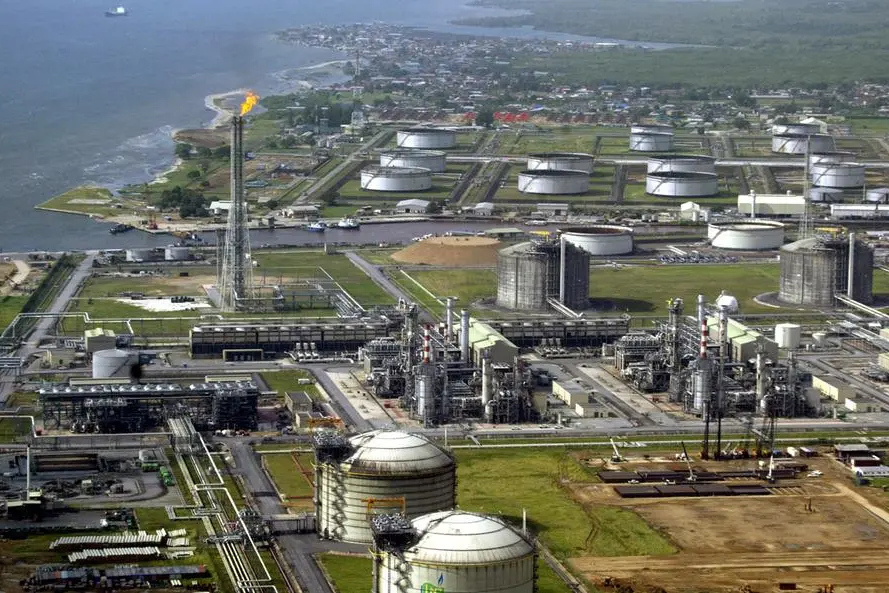PHOTO
Liquefied natural gas shipments will be affected by tensions in the Red Sea, Qatar's prime minister said on Tuesday, warning that military strikes on Yemen risk aggravating the crisis.
"LNG is... as any other merchant shipments. They will be affected by that," Sheikh Mohammed bin Abdulrahman Al Thani told the World Economic Forum in Davos, referring to the increasing exchanges with Yemen's Huthi rebels.
"There are alternative routes, those alternative routes are not more efficient, they're less efficient than the current route," he added.
Rather than use the key route between Asia and European markets, which normally carries about 12 percent of global maritime trade, some shipping companies are now taking a major detour around southern Africa.
Bloomberg reported on Monday that at least five LNG vessels operated by Qatar had stopped en route to the Red Sea.
Sheikh Mohammed said the "central issue" of Gaza, where the Israel-Hamas war has been raging since October, must be addressed to calm the situation in the Red Sea.
He added: "(Military intervention) will not bring an end for this, will not contain it. So the contrary, I think will create... a further escalation."
His comments come after US and British forces hit scores of targets across Yemen on Friday following weeks of attacks by the Iran-backed rebels in response to Israel's war with Hamas militants in the Palestinian territory.
Then on Sunday, US forces shot down a Huthi cruise missile targeting an American destroyer, and on Monday a US-owned cargo ship in the Gulf of Oman was hit by another Huthi missile.
The Huthis had been targeting what they deemed Israeli-linked shipping but after Friday's attacks, they declared US and British interests "legitimate targets".
The Qatari premier called the Red Sea crisis "the most dangerous escalation right now because it's not affecting only the region, it's affecting the global trade as well", as fears rise that the war in Gaza could spread.
Violence involving Iran-aligned groups in Yemen, Lebanon, Iraq and Syria has surged since the war in Gaza began in early October.





















